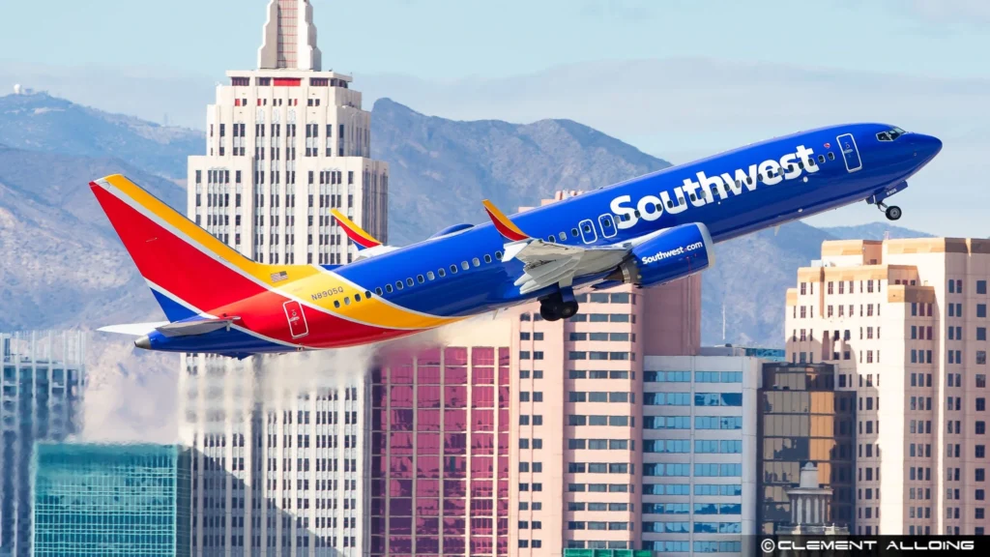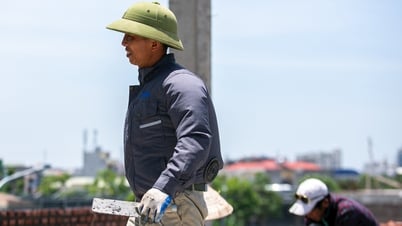An ice cube falling on the floor of an airplane leads to a billion-dollar lawsuit
A passenger has filed a lawsuit against Southwest Airlines in the US District Court of Missouri after slipping on an ice cube on a plane.
This person asked the airline to compensate a total of 200,000 USD (about 5.2 billion VND) with accusations of 2 acts of negligence related to the incident.
Specifically, the accident occurred on Southwest Airlines flight WN4379 (USA), departing from La Guardia airport, New York to St. Louis on May 20.

Passenger Donnell Sims said he suffered neck and back injuries after slipping and falling on an ice cube that had fallen on the floor. A flight attendant had dropped the ice cube and forgotten to clean it up.
According to the passenger's lawsuit filed in court, while collecting trash at the end of the flight, the flight attendant spilled a glass of ice water on the carpeted aisle but did not immediately clean it up at the scene.
A few minutes later, the guest Sims stood up to go to the bathroom. He accidentally stepped on the remaining stone and fell hard to the floor.
Although flight attendants quickly provided assistance, providing pain medication and calling medical staff when the plane landed, Sims was later taken to hospital due to persistent and severe pain.
He decided to file two lawsuits, each claiming $100,000 in damages. The case quickly attracted public attention.
What is the airline's responsibility when an accident occurs?
Lawyers say incidents that occur on domestic flights in the US like Sims's will have to be handled according to the laws of each state.
According to legal documents, Sims claims that Southwest Airlines is liable because its flight attendants failed to respond to an obvious hazard in a timely manner, leading to the accident. Had the rock been cleared away immediately after it hit the floor, the accident may not have occurred.
In the US, airlines often choose to settle privately with passengers to avoid lengthy litigation and negative media coverage, so the actual compensation in cases like this is often not made public.
But Sims’s case also reflects a larger reality: the high cost of medical care in the United States has led many people to seek compensation in court, even when there is no element of intentional harm.
In the context of the US health care system still having many shortcomings, litigation has become one of the ways for victims to reclaim their rights after an accident.
Legal experts say the lawsuit is expected to shed more light on cabin safety procedures and how airlines train flight attendants to handle risks.
Previously, a similar incident happened with Singapore Airlines in February 2024.
According to the lawsuit filed by flight attendant Durairaj Santiran, he slipped on grease on the kitchen floor and suffered a spinal injury. The accident was so serious that he had to quit his job.

A male flight attendant is suing Singapore Airlines for $1.32 million, claiming that the airline was negligent in creating an unsafe workplace for its employees. Due to a spinal injury, he is no longer healthy enough to continue working as a flight attendant.
The damages sought include loss of future earnings, disability, medical and travel expenses. Santiran's lawyers argued that Singapore Airlines' systems were flawed and the workplace unsafe.
Meanwhile, the airline representative denied this claim and said that no one else, whether a passenger or a crew member, saw the grease stain or slipped on the floor except for the former male flight attendant. The airline also stated that the whole story about a grease stain causing him to fall is not true.
Source: https://dantri.com.vn/du-lich/tiep-vien-bo-sot-mot-vien-da-tren-may-bay-khach-doi-boi-thuong-52-ti-dong-20250607110039836.htm

























































































![[OCOP REVIEW] Tu Duyen Syrup - The essence of herbs from the mountains and forests of Nhu Thanh](https://vphoto.vietnam.vn/thumb/402x226/vietnam/resource/IMAGE/2025/6/5/58ca32fce4ec44039e444fbfae7e75ec)







Comment (0)